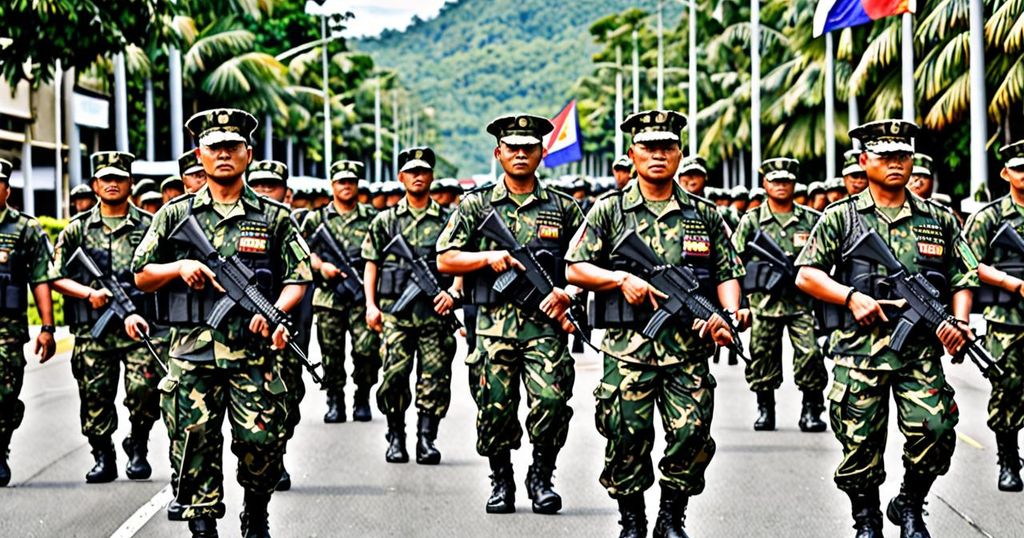The Philippines, a nation that has frequented global news headlines in the past year, is once again capturing attention due to its national security policy. Under the leadership of President Marcos, the current administration is actively addressing various security concerns, particularly those associated with China’s activities in the South China Sea. While the administration’s approach has drawn favorable comparisons to its predecessor, its true efficacy will be measured by its ability to effectively navigate the distinct challenges afflicting the Philippines in the region.
In recent months, the Philippine government has expressed apprehensions regarding China’s assertive behavior in the South China Sea. This has been underscored by multiple interactions between Chinese coast guard vessels and the Philippine Coast Guard, with the most recent occurring in early August. The Philippines has consistently reaffirmed its commitment to safeguarding its territorial integrity, particularly within the contested waters of the South China Sea.
A crucial component of the national security policy involves actively monitoring and addressing Chinese activities in the South China Sea. The objective is to protect Philippine territorial waters and natural resources, as well as to safeguard the well-being of Filipino fishermen and other stakeholders who rely on these resources for their sustenance. Furthermore, the government has demonstrated a willingness to engage in diplomatic efforts to peacefully resolve disputes, ensuring that its approach is not solely reliant on confrontational measures.
The Philippines’ prudent diplomatic approach reflects a tangible emphasis on safeguarding its national interests while also highlighting the importance of mutual respect and collaboration among nations. Additionally, the policy signifies a commitment to upholding international law, specifically the United Nations Convention on the Law of the Sea (UNCLOS), which provides a legal framework for maritime rights and territorial claims.
This stance has resonated positively with regional and global partners, with several countries expressing support for the Philippines’ dedication to upholding stability and the rule of law in the region. The nation’s emphasis on cooperation with other Southeast Asian nations, as well as engagement with traditional allies, underscores the significance of a collective and cooperative approach to addressing security challenges.
As the Philippines navigates its security policy within an increasingly intricate geopolitical landscape, there exists an opportunity to further strengthen its partnerships with like-minded nations to bolster regional security and enhance crisis response capabilities. By leveraging existing alliances and actively participating in multilateral engagements, the Philippines can work to secure its interests while also contributing to broader regional stability.
The evolving national security strategy of the Philippines represents a cautious yet unequivocal approach to addressing security challenges in Southeast Asia. Through its prioritization of territorial defense, diplomatic engagement, and international cooperation, the country is positioning itself as a responsible and proactive actor in the region. The future will undoubtedly reveal the effectiveness of these strategies in safeguarding the Philippines’ national interests and contributing to regional peace and stability.
In conclusion, the Philippines’ national security policy mirrors a prudent and well-considered approach to navigating complex security dynamics in the region. With a focus on defending its territorial integrity, fostering diplomatic engagement, and promoting regional cooperation, the Philippines is taking deliberate steps to ensure the security and stability of Southeast Asia.

Leave a Reply